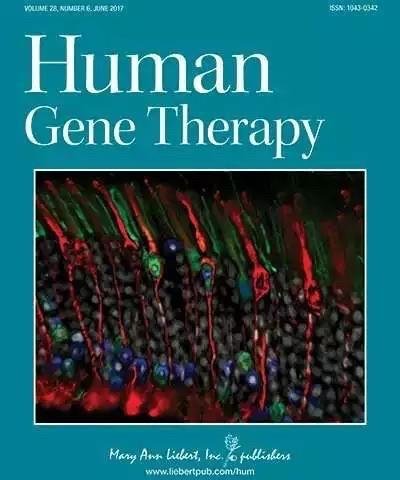Researchers describe novel reporter proteins for long term expression of therapeutic genes
A new study showed that the expression levels of a novel secreted reporter protein delivered to an immunosuppressd large animal model could be detected for several months after infusion into the liver, demonstrating the potential to monitor the effectiveness of delivery and ongoing expression of a therapeutic gene. The genes were packaged and delivered to the liver using the nonviral Sleeping Beauty transposon system, as described in an article published in Human Gene Therapy.
In the article entitled "Transgene Expression in Dogs After Liver-Directed Hydrodynamic Delivery of Sleeping Beauty Transposons Using Balloon Catheters," R. Scott McIvor and coauthors from University of Minnesota, and Discovery Genomics, Minneapolis, MN showed that they were able to infuse DNA solutions into the liver and measure the levels of a reporter protein in the blood for up to 6 weeks. This method could be used for real-time monitoring of the expression of therapeutic genes delivered to target tissues such as the liver.
Additional research from R. Scott McIvor's laboratory at the University of Minnesota and Discovery Genomics showed the presence of a reporter protein in the blood of immunosuppressed dogs' blood for up to 5.5 months after infusion, compared to up to 6 weeks in the previous study in dogs not treated with an immunosuppressive agent. In the article "Prolonged Expression of Secreted Enzymes in Dogs after Liver-Directed Delivery of Sleeping Beauty Transposons: Implications for Non-Viral Gene therapy of Systemic Disease," Elena Aronovich et al. concluded that more research is needed to identify alternative methods capable of achieving therapeutic levels of the transgene products.
"The work from the McIvor lab has combined the excellent safety and high capacity of non-viral systems, with the durability created by transposon-mediated integration," says Editor-in-Chief Terence R. Flotte, MD, Celia and Isaac Haidak Professor of Medical Education and Dean, Provost, and Executive Deputy Chancellor, University of Massachusetts Medical School, Worcester, MA. "The new breakthrough here is proving that a hydrodynamic liver-targeted delivery process can be scaled up from mice to large mammals, and potentially humans, thus surmounting the obstacle of delivering the therapeutic transposon payload to the liver efficiently."

Hi! I am a robot. I just upvoted you! I found similar content that readers might be interested in:
https://medicalxpress.com/news/2017-07-proteins-term-therapeutic-genes.html
@deepbeniwal
Good Job!
Keep posting!
Thanks
Thanks for the good article
Congratulations @deepbeniwal! You received a personal award!
You can view your badges on your Steem Board and compare to others on the Steem Ranking
Vote for @Steemitboard as a witness to get one more award and increased upvotes!